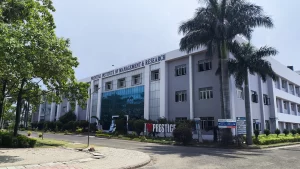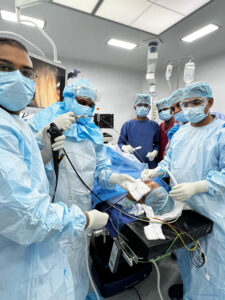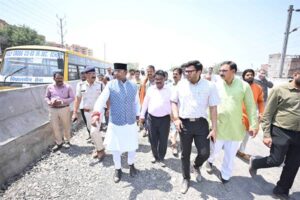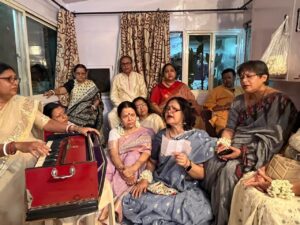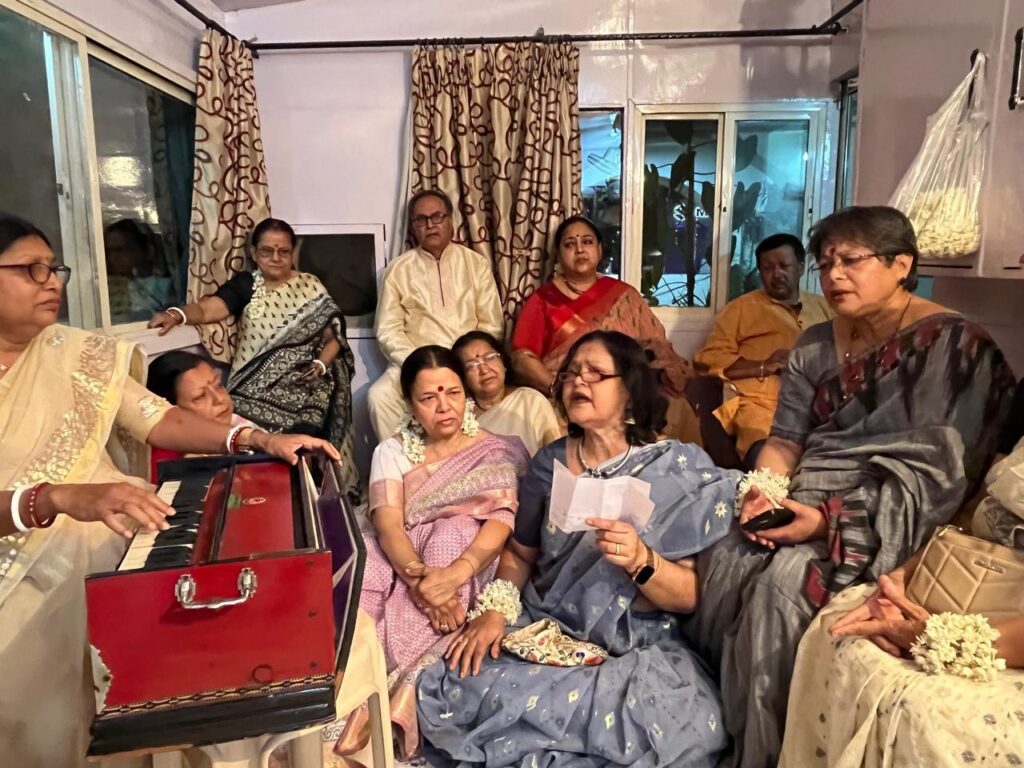
Bhopal: The artists and cultural enthusiasts of Bhopal’s Bengali community welcomed the 1432nd Bengali New Year, ‘Poila Boishakh‘, with great zeal and traditional fervor. The celebration, held at Arunodaya Hall, Kolar Road, was titled “Esho Re Boishakh” and featured a vibrant showcase of music, poetry, folk songs, and dance-drama.
This year, Poila Boishakh was celebrated on April 15, 2025, as people exchanged greetings by saying “Shubho Noboborsho”, meaning “Happy New Year.” The Bengali calendar is believed to have originated around 600 CE, during the reign of King Shashanka, who is known for unifying Bengal. Thus, the day not only marks the beginning of a new year but also commemorates a significant moment in the cultural and historical heritage of Bengal.
The event began with the resonating sounds of conch blowing (shankhnaad) and uludhwani, infusing the venue with an air of festivity and auspiciousness. Uludhwani, a high-pitched trilling sound made by women using their tongue and cheeks, holds a special cultural significance in Bengali traditions, believed to dispel negativity and usher in peace and prosperity.
Group recitations of Rabindranath Tagore’s iconic poems — Esho Re Boishakh, Akash Bhora Surjo Tara, and Aalo Amar Aalo — were performed by Indrani, Swastika, Tapas, Madhuchhanda, Debashish, Malika, and Tanushree.
Mahua Bose presented Ogo Kishore Aaji, Prashant Chatterjee sang Keno Doore Thako, and Tanushree offered a rendition of Rabindra Sangeet. Swastika Chakraborty captivated the audience with the melodious Bhatiali folk song Porer Jaga Porer Jomi.
The event also featured a short comic play performed by Tripti Chatterjee, while Rajat Chatterjee impressed with a soulful poetry recitation. Indrani led the music direction, with Tapas Chakraborty accompanying on the octopad. The event was hosted with charm and warmth by Swastika Chakraborty.
What made this celebration truly special was its intimate, community-driven nature. It was not organized by any formal institution but lovingly brought together by members of the Bengali community in Bhopal, under the thoughtful coordination of Rupak and Mahua Bose — a heartfelt celebration of culture, connection, and collective spirit.

